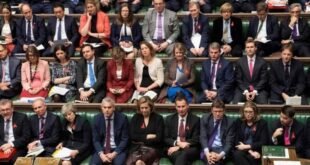Former President Yoon Suk-yeol Appears in Court for Detention Review
Former President Yoon Suk-yeol made a public appearance at the Seoul Central District Court on July 18, arriving around 9 a.m. to attend a critical court hearing that will determine whether his continued detention is legally justified. The session, scheduled for 10:15 a.m., marks Yoon’s first visible presence in court since being placed in custody last week.
Yoon, currently held at the Seoul Detention Center, was transported to the court via a prison vehicle and is being kept in a detention cell until the proceedings begin. The hearing allows judges to reevaluate the legality and necessity of his ongoing detention. Typically, a decision is issued within 24 hours, and legal experts anticipate a ruling as early as the evening of July 18.
Medical Concerns and Legal Arguments
Yoon is expected to request his release on medical grounds, citing significant health deterioration since his arrest. In a statement released on July 17, his legal team highlighted that he is physically unfit to participate in ongoing criminal proceedings or comply with summonses from the special counsel. They warned that “continued detention poses a serious and potentially irreversible threat to his health.”
This argument has become a central point in Yoon’s defense, as his legal team continues to emphasize the impact of his current conditions on his ability to engage in legal processes. The court’s review of these claims will play a crucial role in determining the next steps in his case.
Background of the Indictment
The detention follows an expanded indictment by a special investigation team probing an alleged insurrection plot. Prosecutors have charged Yoon with obstruction of special official duties, along with other related offenses. On July 10, Nam Se-jin, a senior judge overseeing warrant reviews at the Seoul Central District Court, approved his arrest.
Since then, Yoon has repeatedly refused to appear for questioning by prosecutors and has declined to cooperate with transfer procedures. This non-cooperation has led to two failed attempts at forced attendance. Additionally, he has missed two recent court appearances related to the insurrection trial, citing health concerns as the reason for his absence.
Ongoing Legal Challenges
Yoon’s refusal to cooperate with authorities has raised questions about the effectiveness of the legal process and the extent to which former officials can be held accountable for their actions. His legal team has consistently maintained that his health issues are a primary concern, but critics argue that these claims may be used as a strategic move to avoid further scrutiny.
As the court deliberates on his case, the outcome could have significant implications for the broader legal and political landscape in South Korea. The judiciary’s decision on whether to uphold or lift Yoon’s detention will be closely watched by both supporters and opponents of the former president.
Public and Political Reactions
The situation has sparked widespread public debate, with many citizens expressing concern over the potential consequences of Yoon’s continued detention. Some view it as a necessary step to ensure accountability, while others see it as a politically motivated move. The media has also been actively covering the developments, highlighting the tension between legal procedures and political considerations.
Legal observers are closely monitoring the court’s decision, as it could set a precedent for future cases involving high-profile individuals. The outcome may influence how similar situations are handled in the future, particularly when health concerns are cited as a reason for non-compliance with legal obligations.
Conclusion
As the court prepares to make its decision, the focus remains on the balance between justice and individual rights. The legal system must navigate the complexities of Yoon’s case, ensuring that all parties receive fair treatment while upholding the rule of law. The coming days will be crucial in shaping the narrative around this high-profile legal battle.
 Info Malang Raya Its All About World News
Info Malang Raya Its All About World News




